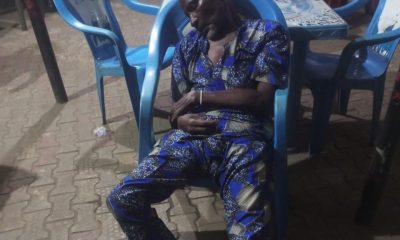Business
Saudi Arabia cancels 264 Air Peace passengers’ visas after arriving Jeddah
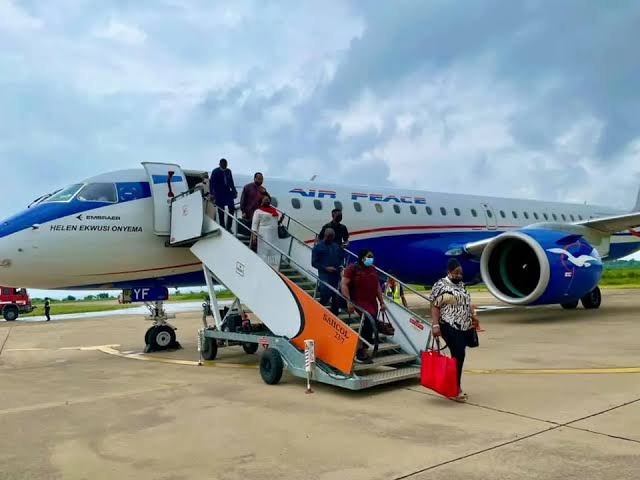
Saudi Arabia authorities have cancelled the visas of all 264 passengers airlifted by Air Peace upon their arrival in Jeddah, from Kano.
According to a source, the Middle Eastern nation asked the airline to return all 264 passengers to Nigeria, but later allowed 87 passengers to remain.
The flight, which took off from the Murtala Muhammed International Airport in Lagos, via the Aminu Kano International Airport in Kano, on Sunday night, was said to have arrived in Jeddah, Saudi Arabia, on Monday.
However, on landing, according to the source, Saudi Arabia authorities announced that all the passengers’ visas were cancelled.
The source said the cancellation was a shock to passengers and airline personnel because they went through the advanced passengers pre-screening system (APPS) — which was also monitored by the Saudi Arabia authorities before the flight left Nigeria.
The source questioned whether the development was a plot to dissuade Air Peace from continuing its operations on the route given the carrier has been recording a high load factor, and also the flight expected to leave on Tuesday to Jeddah was already fully booked.
“Saudi Air has been operating directly from Nigeria to Saudi Arabia and since Air Peace started flight service to the Middle East nation at relatively lower fares, it has been receiving high patronage and as Nigerian carrier, it helps to conserve foreign exchange for the country,” the source said.
It was understood that the Nigerian embassy waded in, forcing the Saudi authorities to reduce the number of passengers that would be returned from 264 to 177.
A source at the Nigerian embassy in Jeddah, said Saudi immigration personnel are unaware of who cancelled the visas, noting that the airline was already airborne to Jeddah when the passengers’ travel documents were voided.
“The airline was exonerated in all this as the APPS, which is live between both countries would have screened out any invalid visa and its passenger. The system accepted all affected passengers and passed them on,” the source said.
The source added that Air Peace is already returning the deported 177 travellers to Nigeria.
“They are on their way to Nigeria now,” the source said.
‘VISA CANCELLATION DUE TO GEOPOLITICS’
Speaking on the issue, John Ojikutu, the chief executive officer (CEO) of Centurion Aviation Security and Safety Consult, Nigeria, said the action of the Saudi authorities was due to geopolitics.
To prevent the situation from reoccurring, he suggested that the Nigerian government should designate domestic airlines with foreign operations as flag carriers as the United States did.
“There is geopolitics there and there is also diplomacy. There is the need for the Nigerian government to stand firmly with Nigerian carriers and also designate them as flag carriers; so that other countries will know that they represent Nigeria,” Ojikutu said.
“Government must come out and intervene. The government must be behind Air Peace now to ensure that it is not denied its rights as contained in the Bilateral Air Service Agreement (BASA) between the two countries.
“The Ministry of Foreign Affairs must not keep quiet. Nigeria must not keep quiet. Ideally, the government is expected to stand behind any of the country’s airlines that it designates to fly overseas.”
Business
Nigeria to stop petrol importation in June, says Dangote
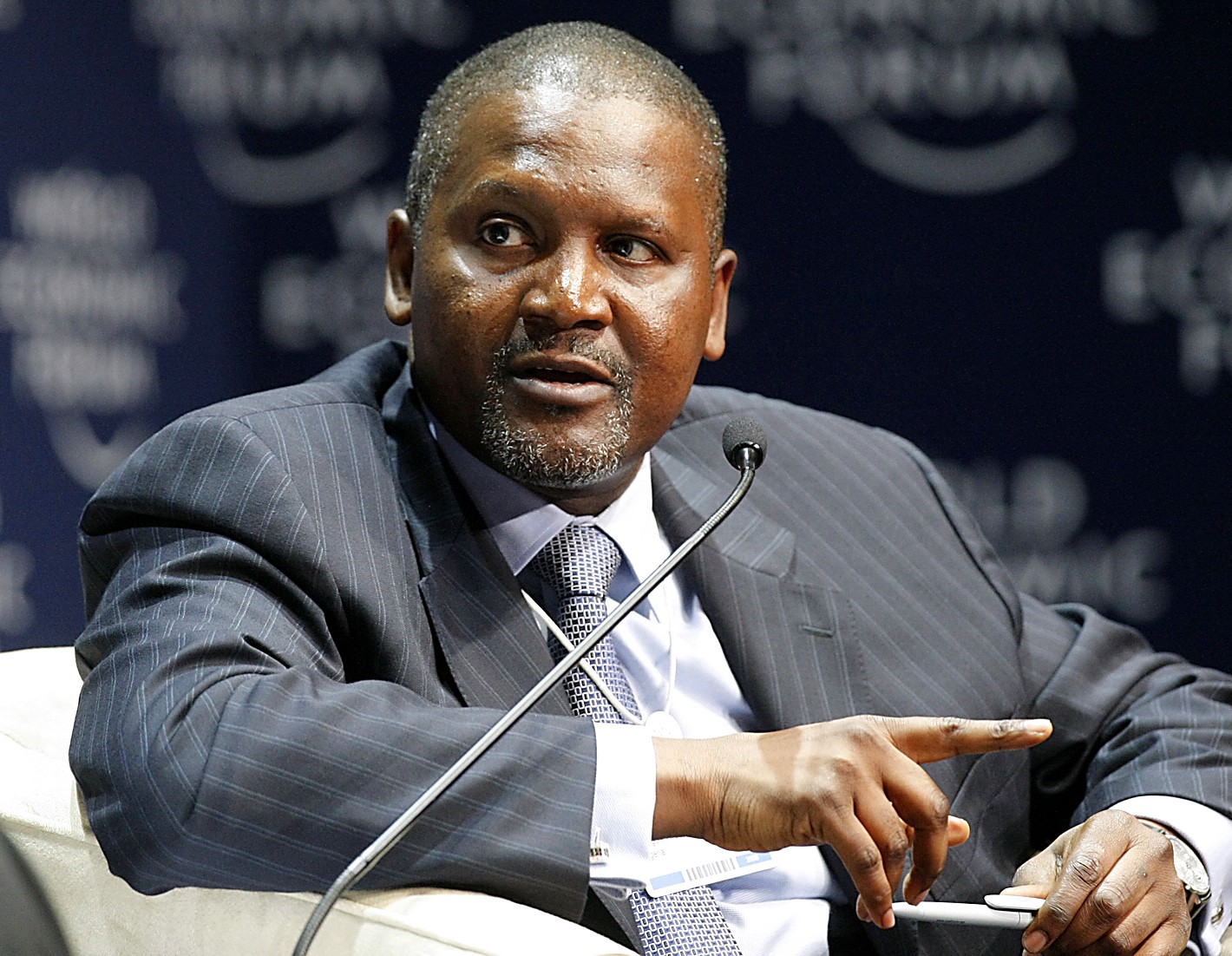
Aliko Dangote, Africa’s richest person, says Nigeria will stop importation of petrol into the country by June.
Dangote spoke at the Africa CEO Forum Annual Summit in Kigali on Friday.
He said the country should end petrol imports by June when Dangote refinery commences production of the product.
“Right now, Nigeria has no cause to import anything apart from gasoline and by sometime in June, within the next four or five weeks, Nigeria shouldn’t import anything like gasoline; not one drop of litre,” he said.
Consequently, Dangote said the shortfall in the supply of petrol will be addressed not only in Nigeria but other West African countries.
“We have enough gasoline to give to at least the entire West Africa. We have enough diesel to give to West Africa and Central Africa,” he said.
Dangote said there is enough aviation fuel to meet the continent’s demands, as well as export to Brazil and Mexico.
Speaking on the commencement of petrol production by the refiner, Dangote said “next month, we will be producing diesel and gasoline”.
He said the refinery would take most African crude grades.
DANGOTE SAYS REFINER WILL NOT FOCUS ONLY ON PETROLEUM PRODUCTS
Dangote said the refiner would not only focus on producing petroleum products.
“Today, our polypropylene and our polyethene will meet the entire demand of Africa and we are doing base oil, which is to do like engine oil,” he said.
“We are doing linear benzyl, which is raw material to produce LLB, which is raw material to produce detergent. We have 1.4 billion population and nobody is producing that in Africa.”
He said all the raw materials detergents are being imported into Africa, adding that the refinery is producing these raw materials to make Africa self-sufficient.
“As I said, give us three and a maximum of four years and Africa will not, I repeat, not import any more fertilizer from anywhere. We will make Africa self-sufficient in potash, phosphate (even if we don’t have enough, there is a lot in Morocco. But we are also looking at the opportunities,” he said
“For our urea, we are at three million tonnes and in the next twenty months, we will be at six million tonnes of urea which is the entire capacity of Egypt.”
The business mogul said the refiner has 650,000 barrels per day, one million tonnes of polypropylene, 590,000 carbon black — the raw materials ink, dyes and others.
Dangote said the second phase of the refinery will start early next year.
Business
Customs FX rate for import duties rises to N1,530/$

The Nigeria Customs Service (NCS) has adjusted the foreign exchange (FX) rate for import duties to N1,530 per dollar.
This represents a 6.13 percent increase compared to the N1,441.58 adopted on May 6.
The rate adopted by customs was observed on Friday on the federal government’s single window trade portal.
Customs typically adopt FX rates recommended by the Central Bank of Nigeria (CBN) for import duties based on trading activities in the official FX market.
It was observed that the NCS rate is marginally lower than the official FX rate of N1,533/$ recorded at the close of trade on May 16.
On May 15, the Nigerian currency depreciated to N1,550 against the dollar at the parallel section of the FX market.
The parallel FX rate declined by 1.95 percent compared to the N1,520/$ reported on May 13.
On May 16, Muda Yusuf, director-general, Centre for Promotion of Private Enterprise (CPPE), advised NCS to set a quarterly exchange rate between N800/$ and N1000/$ for import duties assessment.
Yusuf said the continuous fluctuation affects inflation.
He said setting a fixed rate was necessary to reduce the pass-through effect of heightening trade costs on inflation.
Business
Naira appreciates at parallel market, official window
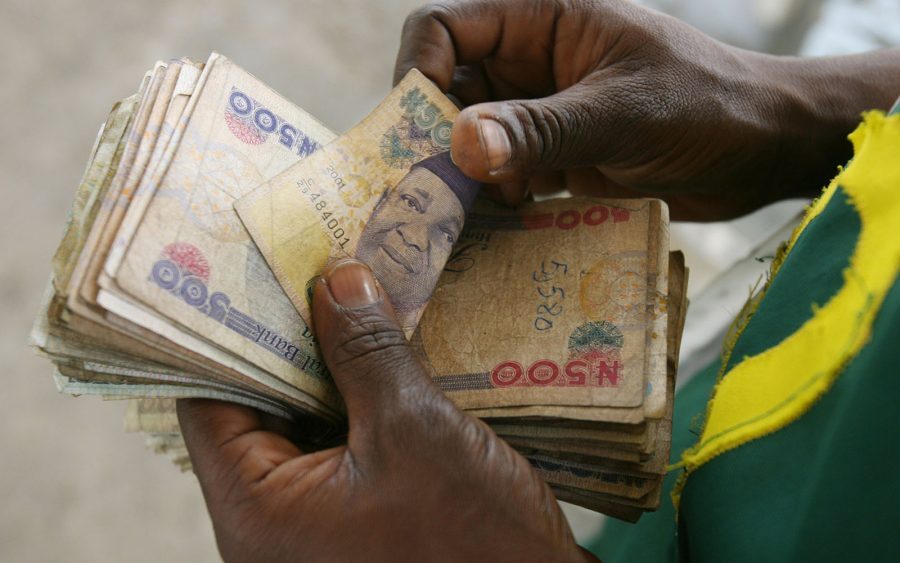
The naira appreciated in the parallel section of the foreign exchange (FX) market on Friday.
At the Lagos street market, currency traders, also known as bureau de change (BDC) operators, quoted the naira at N1,510 to the greenback.
The traders put the buying price of the dollar at N1,480 and the selling price at N1,510 — leaving a profit margin of N30.
The figure represents an appreciation of N40 or 2.65 percent from the N1,550/$ traded on May 15.
At the FMDQ Exchange, a platform that oversees official foreign exchange (FX) trading in Nigeria, the local currency appreciated by 2.45 percent or N36.66 to N1,497.33/$ on Friday — from N1,533.99/$ on May 16.
During trading hours, an exchange rate of N1,555 to the dollar was the highest rate recorded and the lowest rate was N1,415/$.
At the official window, a daily turnover of $83.50 million was recorded.
On May 16, the Centre for the Promotion of Private Enterprise (CPPE) urged the Central Bank of Nigeria (CBN) to peg the exchange rate benchmark for computation of import duty between N800 and N1,000 per dollar — to be reviewed quarterly.
Muda Yusuf, CPPE’s director-general, said this is important to lessen the pass-through effect of heightening trade costs on inflation.
-

 Entertainment1 week ago
Entertainment1 week agoTems announces release date for her debut album ‘Born In The Wild’
-

 Religion4 days ago
Religion4 days agoAllow RCCG members attend your schools for free, Lege Miami tells pastor Adeboye
-

 Entertainment4 days ago
Entertainment4 days ago“My dating era has come to an end” – Actress Susan Peters shed tears of joy as she hints at remarriage
-

 Entertainment1 week ago
Entertainment1 week agoEsther Ogbu narrates how she once slept on the floor for seven days to avoid being sexually molested
-

 Business4 days ago
Business4 days agoSMEDAN begins disbursement of N5bn loans to SMEs
-
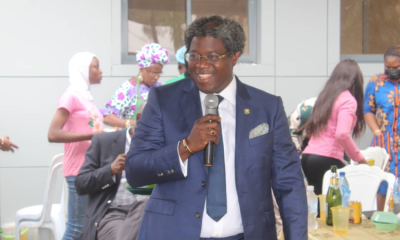
 News1 week ago
News1 week agoLagos state government introduces electronic system for 10-minute approval of building permits
-

 Celebrities4 days ago
Celebrities4 days ago‘Superstar no get money for car’ – Speed Darlington mocks Portable following his arrest (Video)
-

 Sports6 days ago
Sports6 days agoAmusan sets world leading record in 100m hurdles





